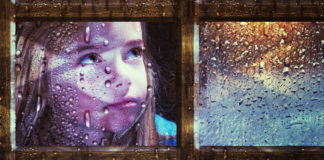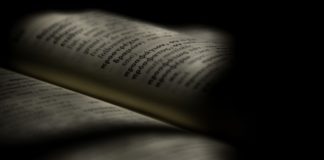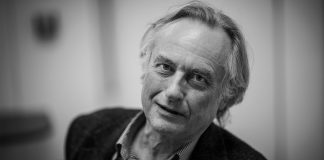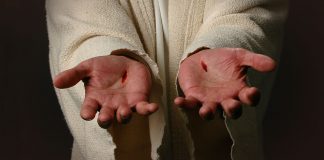Let’s read Genesis with “new eyes”
In the spring of 2022, I interviewed the venerable professor of Hebrew exegesis, Jacques Doukhan, for the second time. Ten years before, in our first interview, we discussed his life: his beginnings in a Jewish family in Constantine, Algeria, his studies in France, Switzerland and the United States, his work as a teacher and author. This time we talked about the study that...
Instant regrets, memory wipes & free will
Have you ever done something you immediately regret? Perhaps you’ve let your emotions get the better of you, lost control and said something particularly harsh to a friend in the heat of a moment—you wish you could take the words back the moment they left your lips.
The fascinating gospel of John
Dr Kendra Haloviak-Valentine, Professor of New Testament at La Sierra University in Redlands, California, comes from a family with a tradition of theology and research.
The Second Coming Files: A 2000-Year Inquiry | Part V: Nineteenth-Century Millenarianism in the British Isles
After covering the historical evolution of the Christian teaching about the return of Jesus Christ in the first three articles, in the fourth article, which precedes the one that you’re reading now, I made a minimal review of some philosophical, political, religious, and esoteric currents that are important to understand the world in which the millenarian revivals of the 19th century emerged.
What is the Church?
What do you think of when you hear the word church? Perhaps your mind conjures up images of ancient cathedrals, resplendent with gothic spires, stained glass windows, and vaulted ceilings.
The theological masterpiece of the Reformation
Written in Latin by a 26-year-old Frenchman in less than a year, it is a book of 516 pages. Published in Switzerland and dedicated to the French king from whom he was fleeing, it is the most important theological work of the Reformation.
Paradise seen from the outside
In wisdom you made them all; the earth is full of your creatures – Psalm 104:24
How Jesus used the Hebrew Scriptures
When we read the Gospels, we may be put off by the way Jesus Christ interprets the Hebrew Scriptures.
How do I learn to really enjoy life?
I don’t remember much about the moment. I remember its warmth, and the way it glowed with purpose and spirit. But the stage is blurry. The song which pulsed out from it is uncertain. I know it came from a good friend of mine, one whose spot-lit glory provoked in me no jealousy, no feeling of being left out.
What religion has to say about anxiety
A cold flash, like the strange, icy feeling after a burn, runs through his body with every breath. He feels his heart racing. It feels like it is counting down to the moment when it will explode—or, mercifully, to the moment when he will turn his pillow to the cooler side, and finally fall asleep.
The essence of Christmas
A magical Christmas, a magical evening, magical touch, magical love – people talk about magic when they experience special emotions that they cannot or would rather not explain. "Bring a little magic into your life". This is a saying that resonates extremely well with the expectations of an entire generation.
Thank God for atheists?
Richard Dawkins is arguably the world’s best-known atheist. His 2006 book The God Delusion was a runaway success and widely influential. That’s why theologian Alister McGrath was surprised when a young man told him he became a Christian after reading The God Delusion.
Really Living
The following interview was conducted by Hope Channel Romania almost ten years ago when the guest, Pastor Don Schneider, was the president of the Adventist Church in North America. Last year, on May 23, he passed away at the age of 76. Those who follow Hope Channel remember that, for a few seasons, they were able to watch his show, Really Living. Every...
COVID-19: Rehearsal for the big surprise
There has been a lot of speculation in the online environment about COVID-19 and the end of the world, but the connection between the two is more subtle than it first appears. It has been suggested that the pandemic is only the tip of the iceberg, that it is one of the seven last plagues of Revelation, or that it is the fourth...
The One who couldn’t live knowing that I was dying
Love stories have the ability to captivate us with the details of an undying beauty, to overshadow the uncertainties about their permanence, to introduce through the front door the hope that one day we will live such a story, which will bear the signature of eternity.


























